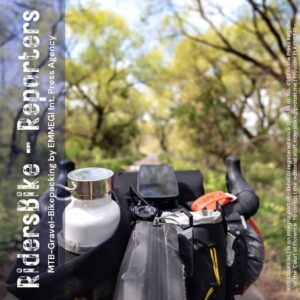How to plan a bike trip

When you plan a cycling holiday, you are in direct contact with the environment and have the freedom to stop wherever you want to appreciate the beauty of the landscape.
In addition to enjoying the economic benefits, it also improves your health and physical well-being, which leads to a fun, enjoyable and healthy experience in equal measure.
Travelling by bike is not only a great way to explore new places and stay active, but it can also be a much more economical option. Here is an essential guide to get you started on planning a cycling trip that will allow you to enjoy an unforgettable holiday without breaking any budget.
Planning a cycling holiday
Choose a suitable destination: The first thing to do is to choose a destination that suits your interests and cycling skills. You can opt for scenic coastal routes, country tracks or urban roads to explore the cities. Do your research on the available routes, cycling infrastructure and places of interest you would like to visit along the way.
Plan your trip length: Determine the length of your bike trip based on the days you have available and the distance you want to cover each day. Be sure to be realistic about your physical capabilities and allow extra time to rest and explore along the way.
Choose the right gear: You don’t have to spend a fortune on cycling gear. Make sure you have a bike that fits and is in good condition. If you don’t have your own bike, you can consider renting one. Also, invest in essentials like a helmet, lights, panniers to carry your belongings, and a reusable water bottle.
Affordable accommodation: Look for budget accommodation options, such as campsites, hostels, or shared accommodation. You can also consider hosting on sharing economy platforms to save money.
Food and meals: Bring non-perishable, nutritious food that you can consume during the trip to avoid spending on expensive meals. Take advantage of stops in towns or cities to sample local cuisine at more affordable prices.
Routes and maps: Plan your route in advance and bring maps or use navigation apps specifically for cyclists. This will help you avoid unnecessary detours and optimize your time and effort.
Traveling alone or in a group: If you have friends or family who enjoy cycling, invite them to join you on your adventure. Traveling in a group can not only be more fun, but you can also share expenses, such as accommodation, and plan the route together.
Save on transportation: If you need to travel to start or end your cycling trip, look for affordable transportation options, such as regional buses or trains. You can also consider combining your cycling trip with public transportation in cities to cover longer distances.
Be flexible: While it is important to plan your trip, it is also essential to be flexible in case of unexpected changes. Cycling can present unexpected challenges, such as weather changes, road closures, or mechanical problems. Being open-minded will help you enjoy the experience more and find creative solutions.


















